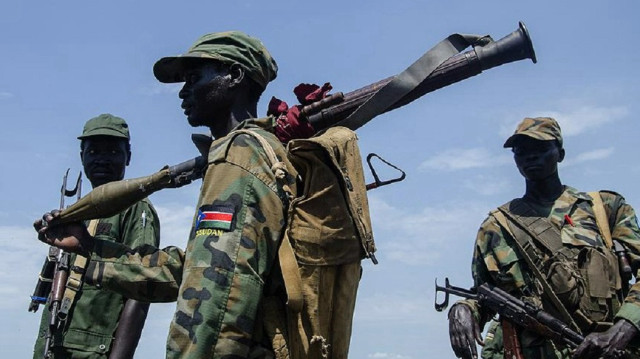- Details
- East Africa
- 393
Those providing arms, carrying out arms transfers need to be reminded that they have obligation to ensure that such arms are not used in violations of international humanitarian law, spokesperson says
The UN human rights office on Tuesday urged the extension of the arms embargo in Sudan, saying the even selective embargo on Darfur is "not" viable.
"The arms embargo on Darfur is also clearly not being respected. This is why we are renewing our call to everyone who has any involvement now. This is states that may be providing weapons; it's also states that may have involvement through the supply chain as well in the provision of weapons towards this conflict, to both parties to the conflict, they need to be reminded of their obligations." spokesperson Ravina Shamdasani told a UN briefing in Geneva, responding to Anadolu's question.
Shamdasani said that UN High Commissioner Volker Turk has repeatedly called on all states, who have any involvement or influence over parties to the conflict, to use that influence to bring this conflict to an end and to bring peace in Sudan.
"Not only do the parties to the conflict need to ensure that civilians are not harmed in the use of these weapons, but those who are providing arms, who are carrying out arms transfers, also need to be reminded that they have an obligation to ensure that such arms are not used in violation of international humanitarian law," she said.
Referring to the recently released Sudan report on entrenched impunity fueling violations, she said: "We have documented many violations that could amount to war crimes."
To Anadolu's question about humanitarian assistance, Li Fung, the head of the UN Human Rights Office in Sudan, said: "In relation to the increasing hostilities and in battles of control in various areas, this very fluid and dynamic security situation is a challenge to human rights, to protection, and indeed to the broader engagement of the of the UN in providing humanitarian assistance."
In the Sudan report, the office said: "Entrenched impunity is fuelling gross human rights violations and abuses" in the country as fighting spreads to more parts of the country and involves additional armed actors.
The report also documented ethnically motivated summary executions, as well as "a sustained pattern" of attacks on medical facilities.
"The continued and deliberate attacks on civilians and civilian objects, as well as summary executions, sexual violence and other violations and abuses, underscore the utter failure by both parties to respect the rules and principles of international humanitarian and human rights law," Turk said in the report.
"Some of these acts may amount to war crimes. They must be investigated promptly and independently, with a view to bringing those responsible to justice," he added.
According to the report, the conflict has undermined the rights to health and education, with up to 80% of health facilities rendered non-functional and over 90% of school-age children left with no access to formal education.
In all, throughout 2024, the office documented more than 4,200 civilian killings in the context of hostilities, the report said, adding that the total number of civilian casualties is likely much higher.
"As fighting intensifies for control of Khartoum and El Fasher, I remain very concerned about the protection of civilians, particularly those belonging to groups that have been subjected to persistent discrimination," Turk said.
He stressed that accountability, regardless of the rank and affiliation of the perpetrators, is "critical to breaking the recurring cycle of violence and impunity" in Sudan. Yeni Safak






